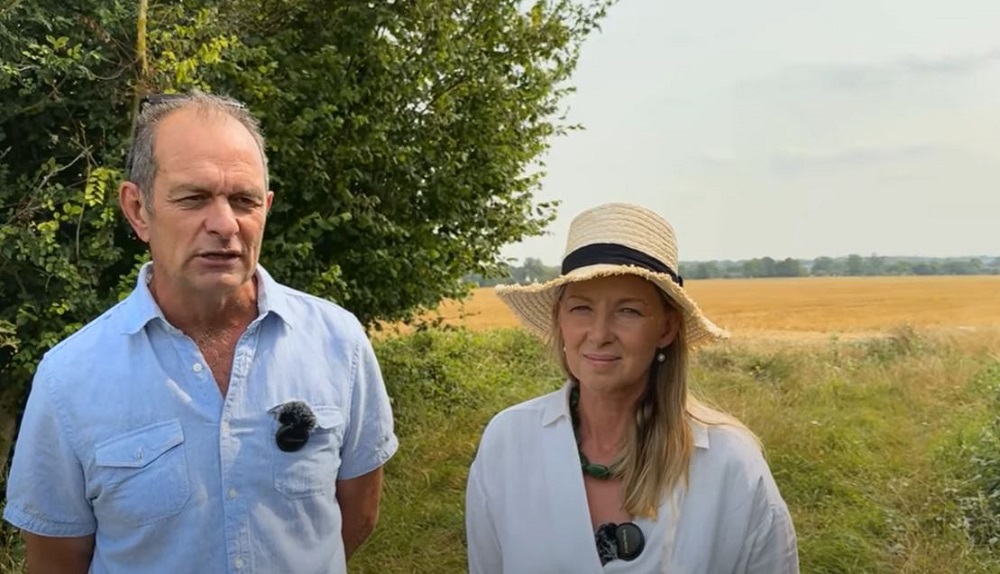- Home
- Knowledge library
- Cover crop champions (2024–2025)
Cover crop champions (2024–2025)
Summary
About this project
Incorporating cover crops into an arable rotation has many soil, crop, economic and environmental benefits. The best cover crop choice depends on the farm’s aims and objectives and how well it fits the system.
This knowledge exchange (KE) project set up a UK network of cover crop champions to follow a systematic approach to grow and evaluate cover crops.
The network provides evidence-based case studies in commercial settings to aid with the selection of cover crops and their husbandry.
Why cover crops champions?
The AHDB Cereals & Oilseeds sector plan 2022–2027 encourages investment in activities that improve the whole system, rather than just directly benefiting cash crops. It cites the potential of cover crops to provide more favourable cropping balances and help farmers capitalise on more diverse income opportunities, such as those offered in the Sustainable Farming Incentive (SFI).
Knowledge gaps associated with cover crops were often cited by farmers at AHDB events during 2023/24. The AHDB Cover Crops Guide expert steering group is also keen to provide independent evidence that supports the adoption of better cover crop practices. As a result, the topic was one of the first considered by a new farmer-led AHDB Cereals & Oilseeds research and knowledge exchange (R&KE) committee at its inaugural meeting in May 2024.
It led to the AHDB Cereals & Oilseeds Sector Council committing up to £60,000 to provide independent information associated with many aspects of growing cover crops, including establishment and destruction methods, nutrient management implications and long-term benefits.
The funding is being used to support this UK network of cover crop champions on commercial farms to demonstrate cover crop approaches.
In a separate activity, the funding will invest in evidence-based reviews to help farmers integrate cover crops in their rotations.
*The funding also covers costs associated with the development of case study information, cover crop guidance and promotional materials related the cover crop investment.
What do the champions do?
During summer 2024, the AHDB Cereals & Oilseeds regional Knowledge Exchange team recruited cover crop champions for 2024–2025.
Cover crop champions will:
- Follow a systematic approach
- Be clear about their aims and objectives
- Establish, grow and terminate a cover crop during the 2024/25 growing season
- Monitor progress by recording core observations and measurements
- Share experiences, such as via personal social media feeds
AHDB will:
- Recruit cover crop champions and facilitate the network
- Contribute to a trial design that works for the farm system and its aims and objectives
- Set core observations and measurements
- Support cover crop monitoring and recording (and deal with associated costs)
- Facilitate the evaluation of observations and measurements
- Provide evidence and insight to guide future activity
- Share experiences, such as via web-based case studies
With several years of cover crop experience, the champions want to take their approaches to the next level. They are particularly interested to measure how cover crops influence nutrient availability to subsequent crops.
Following the relatively wet 2023/24 growing season, soil condition was relatively poor at these commercial sites when the cover crops were established in autumn 2024. The initiative provides a good opportunity to measure how cover crops help soils recover compared to the no-cover-crop controls.
Meet your champions
Our first news article on the initiative introduces each of the champions, including the aims and objectives for their cover crop trials.
UK cover crop champions unveiled by AHDB (news article)
Post-emergence videos will be added to this page (news article)
Championing cover crop expertise (AHDB from theory to field article in the June 2025 edition of CPM)
Cover Crop Champions on YouTube
To browse videos, click on the icon at the top right of the video (three horizontal lines with a small arrow).
A systematic approach
It is important to follow a systematic approach to cover crop evaluation. The key is to be methodical and know how to measure success. AHDB guidance details five steps to evaluate cover crops, which are followed by the cover crop champions.
Five steps to success
- Research and identify your aims and objectives
- Grow a few options (including controls)
- Monitor progress and responses
- Evaluate the response
- Respond to the evidence



.JPG)
